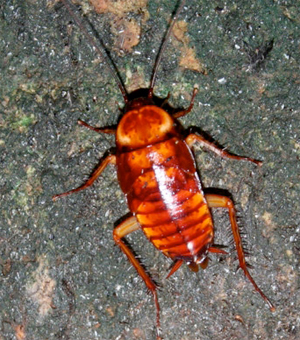
Scientists in the Netherlands have discovered that insects produce significantly less greenhouse gas per kilogram of meat than cattle or pigs. Their study, published in the online journal PLoS One, suggests that a move towards insect farming could result in a more sustainable - and affordable - form of meat production.
The rearing of cattle and pigs for meat production results in an estimated 18 percent of global greenhouse gas emissions. With worldwide consumption of beef and pork expected to double by 2020, alternatives are being investigated. Of these, perhaps the most notable has been the development of "in-vitro meat" which is lab-grown tissue not requiring the production of a whole organism. Initiated by NASA as a form of astronaut food, in-vitro meat production took its first steps in 2000 when scientists used goldfish cells to grow edible protein resembling fish fillets. Since then, turkey and pig cells have been used to create spam-like substances, and Time Magazine has included in-vitro meat in its list of the top 50 breakthrough ideas of 2009.
In addition to the environmental impact of current meat production techniques, scientists believe that the inevitable increase in price as population-driven demand grows will ultimately result in traditional meat products becoming unavailable to many people around the world.
Researchers at Wageningen University in the Netherlands looked at mealworms, house crickets, migratory locusts, sun beetles, and Dubia cockroaches, and for the first time quantified the amounts of methane (CH4) and nitrous oxide (N2O) released per kilogram of insect meat. They found that the amounts of gases released by insects to be much smaller than those released by cattle and pigs. For instance, mealworms produce between ten and a hundred times less greenhouse gas emissions per kilogram than do pigs. Ammonia levels also declined significantly.
The scientists attributed the decrease in emissions to the insects' more efficient use of food. Because they aren't warm-blooded, what insects eat is aimed directly at body growth rather than maintaining a stable body temperature.
While the results are promising, the researchers caution that more study needs to be done in order to determine the impact of insect-farming on the entire production chain.
http://news.mongabay.com/2011/0109-morgan_insect_meat.html




